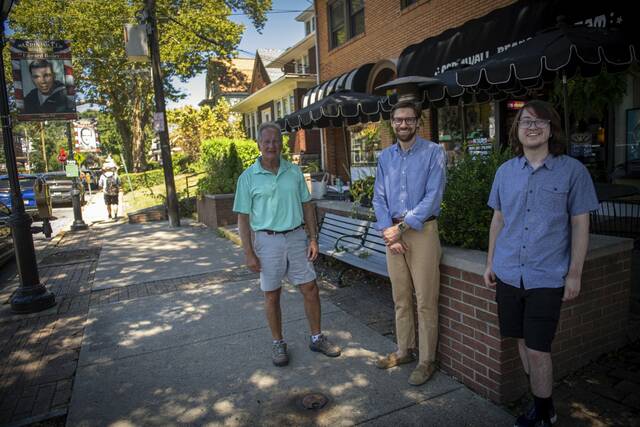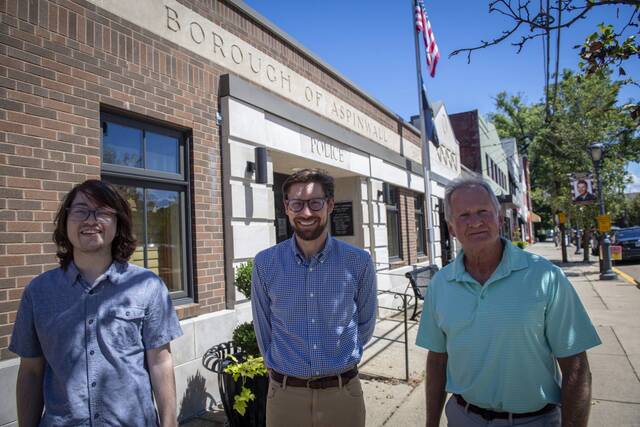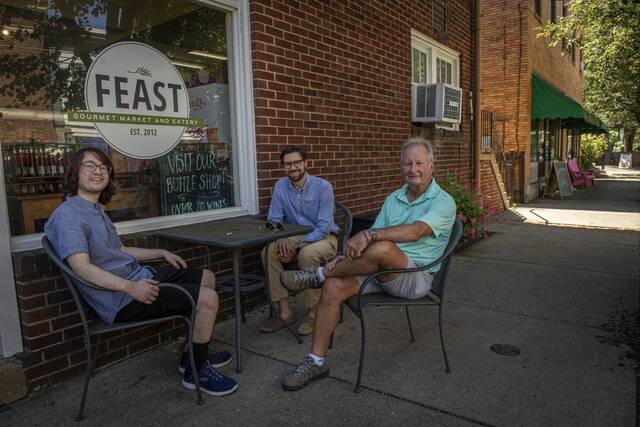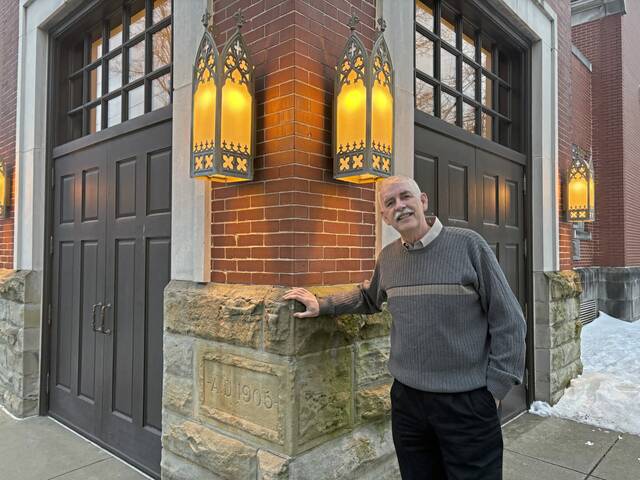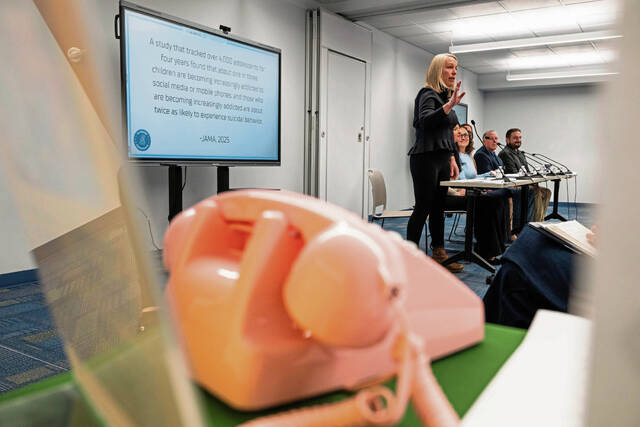A group of dedicated volunteers is aiming to spread the word about a new resource addressing potential human rights issues in Aspinwall.
The Aspinwall Human Relations Commission was established on April 10 of last year in an effort to safeguard and protect all persons from all forms of discrimination within the borough.
The five-person commission appointed by council includes volunteers living in Aspinwall serving four-year terms — Devin Misour, attorney and commission chair; Jacob McWilliams, University of Pittsburgh student, commission vice-chair, member of the Allegheny County Human Relations Commission and legislative fellow in the Allegheny County Executive’s office; retiree Julian Asenjo, who has more than 32 years in higher education as a Latin American studies as a Fulbright advisor and a freelance Spanish and Portuguese interpreter; Bethanie Stein, Duquesne University grad and president of Humana’s pharmacy segment; and Suzanne Columbus, Penn State University grad and former senior sales manager at Procter & Gamble.
Members recently participated in Aspinwall’s Big Night Out event on Aug. 7 to shine a spotlight on the commission to the borough’s almost 3,000 residents.
“We want to get the publicity and that’s why we participated in Big Night Out. We want people to know that we exist and that Aspinwall citizens have rights and we’re a presence in the community,” McWilliams said.
Aspinwall council Vice President Heth Turnquist spearheaded the venture.
He said the commission has been a work in progress for years and credited former councilman Dave Brown for putting forth the idea. The borough also received assistance in commission development from Turnquist’s daughter, Lydia, when she was a junior council member.
“It’s one of those situations where we live in a world where discrimination or accusations of it come up, and I think it is a good thing to have a way to work locally to try and resolve it,” Turnquist said.
The idea would be for the commission to serve as a mediator when these issues come up, particularly with employment or housing-related issues, according to the councilman.
“Hopefully, you could solve these things locally and kind of work for the harmony of the community,” Turnquist said. “I think we’re fortunate with the team that stepped up to do it.”
He went on to highlight mediation training some members recently received, and how the commission will be a great asset to the borough.
“Our main goal is to protect residents against discrimination in different areas. We have different classes that people are protected under, so if anyone faces discrimination because of protected classes, they can come to us and we help to resolve it,” McWilliams said.
The commission is available to investigate complaints of alleged discrimination in the areas of public accommodations, housing and employment.
Discrimination and protected classes include employment, gender, age, sex, religion, gender identity, veteran status, marital status, race, handicap or disability.
Borough residents can file a complaint within 180 days of the last occurrence to the commission in person or via mail.
The borough will document the complaint and forward to the commission within 30 days and the commission will determine whether it has jurisdiction over the complaint.
The commission may recommend dismissal or refiling based on jurisdiction, engage in mediation or formally investigate and file the case.
If a complaint can’t be resolved locally, the commission may refer it to the Pennsylvania Human Relations Commission or another relevant agency.
Borough manager Melissa Lang O’Malley said the commission has not had to file a case and has not received any complaints as of Aug. 21.
“We don’t hope for conflict. We’re a valuable resource,” Asenjo said. “Mediation and counseling to avoid expensive legal conflicts is one of the goals and one of the things we represent as a resource.”
Misour and Asenjo are both certified mediators in Pennsylvania.
Sharpsburg and Etna have similar commissions, but McWilliams said there is a need at the borough level.
“We want the community to understand that we’re a resource that’s available within the confines of the legislation we can help,” Misour said.
McWilliams pointed out that an example of discrimination could be if someone wasn’t hired for a job because of one of their attributes, or someone not getting a promotion or housing because of a different protected class.
Lang O’Malley noted the addition of the commission benefits all of Aspinwall.
“The Human Relations Commission will continue to help in building a more inclusive, respectful and equitable Aspinwall where all individuals feel valued and heard,” she said.
An example of discrimination could include a senior citizen being denied housing based on their age.
In Aspinwall, 54 percent of the population is adults aged 18 to 64, according to 2023 U.S. Census data. The race breakdown in the borough is 86 percent white, 3 percent Black and 11 percent Asian.
Aspinwall had 56 veterans residing in the borough in 2023 and 75 percent of residents have a bachelor’s degree or higher.
Two percent of seniors 65 and older in Aspinwall are living at the poverty level.
Future goals for the commission include more community awareness.
“We want to educate more residents on what rights they do have. We’d like to host an event solely focused on the commission teaching residents and having more public events,” McWilliams said.
Misour reinforced said getting the commission’s name out there is the best way they can fulfill their mission.
“People can’t enforce rights they don’t know they have,” Misour said.



